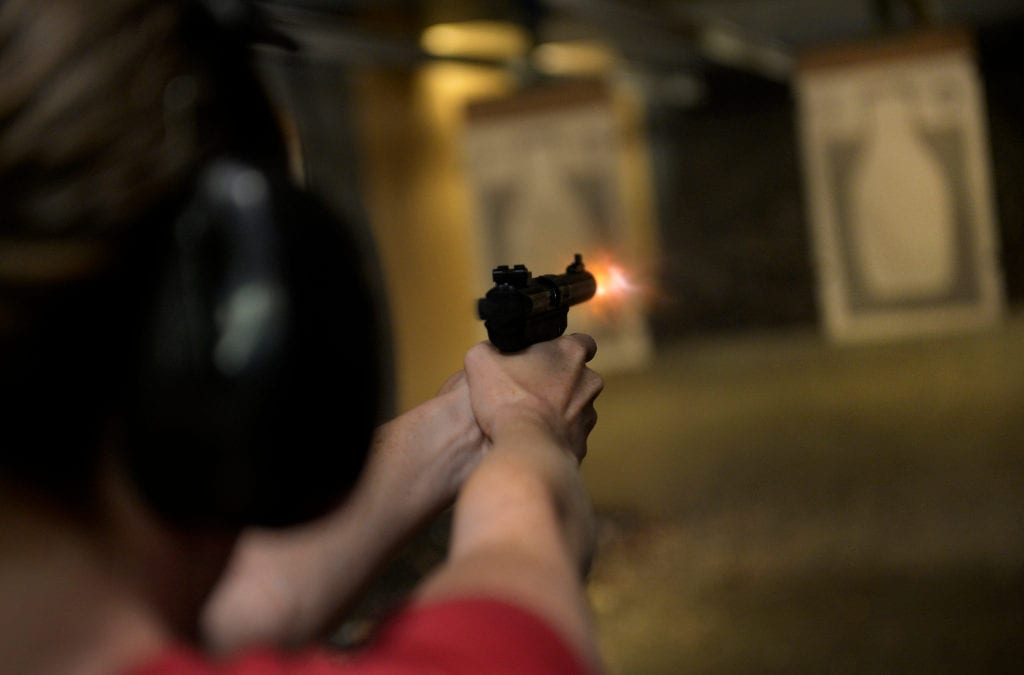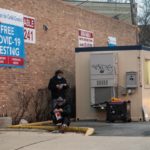Coloradans since last year have bought guns at such a rapid pace that gun store owners struggled to keep their shelves stocked.
Bristlecone Shooting, Training and Retail Center in Lakewood generally carries several hundred guns at any time, but during the pandemic, the shop’s stock sometimes dropped to as few as 10, co-owner Jacquelyn Clark said. The store’s supply of guns has improved, but it’s still limiting how much ammunition people can buy.
“There’s been a massive increase in demand at every level,” Clark said.
More Coloradans than ever before bought guns last year and data from the first five months of 2021 show the record pace of purchases continues.
The Colorado Bureau of Investigation approved 487,097 gun sales in 2020 — a 45% increase over 2019 and the highest number ever recorded in the state, data collected by the agency shows.
More gun sales were approved in 2020 than were recorded in 2000, 2001 and 2002 combined.
“The manufacturers could not keep up with the demand,” said Chuck Lawson, a customer service representative at Centennial Gun Club. “It was a number of factors that really changed everything. When COVID hit, people rushed out and bought toilet paper and guns. Then the riots hit, and people bought guns. Then there was the election, which are always good for gun sales.”
In the first five months of 2021, CBI approved 205,918 gun sales. If that rate continues, this year’s sales will exceed those recorded in 2020.
The pre-purchase background checks conducted by CBI and other law enforcement agencies do not necessarily equate to a gun sale, but academics and the firearms industry use the number of checks as a way to keep track of demand and firearm sales trends since there is no centralized database of gun sales and ownership.
Monthly data shows background checks spiked 59% month-over-month in March 2020 — the same month Gov. Jared Polis declared a state of emergency due to the coronavirus pandemic. The checks dropped slightly in the following months, but remained higher than pre-pandemic averages.
Gun sales bumped up and down, but remained largely elevated, during the months following massive racial justice protests in many Colorado communities during the summer of 2020, data shows. Sales ticked back up near their early-pandemic level in January 2021, the month President Joe Biden took office following the riot at the U.S. Capitol that interrupted the certification of the election results.
Many of the customers who came to Bristlecone Shooting in the last year were people who never owned a gun before and were looking to purchase something for self-defense, Clark said. People were searching for a way to feel safe as COVID-19 spread across the U.S. and upended normal life, she said.
“We had people coming in every day saying, ‘I’ve never held a gun in my life,’” Lawson said.
According to CBI data, about 57% of guns sold in Colorado last year were handguns, which are often peoples’ preferred type of firearm for self-defense.
Wait times for CBI to complete the necessary background checks also skyrocketed during the pandemic. In 2019, the average wait time never exceeded 11 minutes, CBI data shows. In 2020, the maximum average wait time was 3 days and 23 hours.
Demand for the classes required to obtain a concealed carry permit also skyrocketed, Clark said. Between March and December 2020, sign-ups for the safety classes at Bristlecone Shooting were up about 300% compared to the year prior. That’s a good thing, she said, because people are seeking training on how to use guns as safely as possible.
“You need to know how to safely operate it and you need to know how to safely store it,” Clark said.
The surge in gun purchases in Colorado is part of a national trend, federal data shows.
The National Instant Criminal Background Check System in 2020 processed 39.7 million firearm purchase background checks — the highest annual number ever recorded and a 40% increase from 2019.
Like in Colorado, sales started to spike in March 2020. Phillip Levine, a statistics and economics professor at Wellesley College, pointed to an analysis published by the Brookings Institute that found 3 million more guns were sold between March and July of 2020 than would be expected if previous years’ trends held.
“The primary driver of gun sales is uncertainty,” Levine said. “When Americans are uncertain about aspects of their lives, they turn to firearms.”
Those uncertainties can take many forms. Gun sales often shoot up if there is talk of enacting new gun regulations and sometimes after mass shootings — but generally only when those tragedies spur calls for more gun control and there seems to be the political will to enact it, he said. Political uncertainty and the election of Democrats also fuel sales.
Levine found that the rate of sales in states did not correlate with COVID-19 death rates or increases in unemployment. It’s also impossible that 2020’s nationwide surge in firearm purchases was fueled by people in cities where large racial justice protests took place after the murder of George Floyd, he said.
“It’s not really localized, these responses. People are responding to the national mood,” Levine said.
Clark and Lawson both said that sales have started to slow in the last month or two, just as supply chains are improving. The staff at Centennial Gun Club no longer has to spread out merchandise on the shelves to keep them from looking bare.
But gun sales remain high. Two decades of CBI data show that Coloradans continue to buy guns at a higher rate than they did at the beginning of the millennium.
Colorado’s population grew from 4.1 million in 2000 to 5.8 million in 2020 and the per capita rate of gun sales has more than doubled in that time.
In 2000, CBI approved 3.3 gun sales per 100 residents. In 2020, that number rose to 8.7 sales per 100 people.
This content was originally published here.




